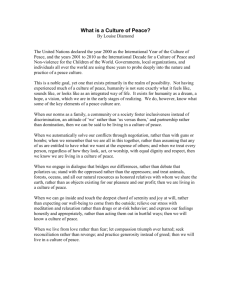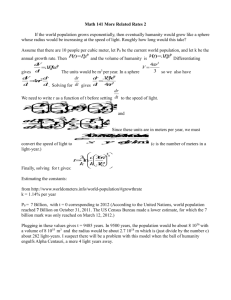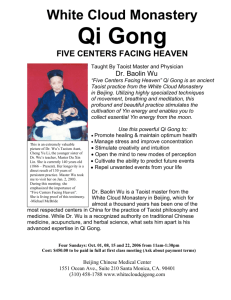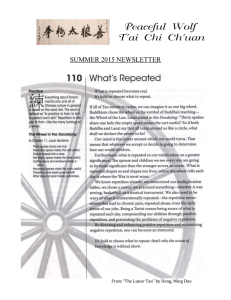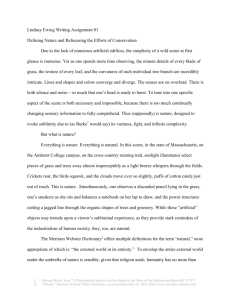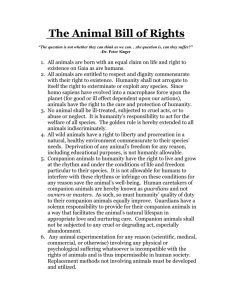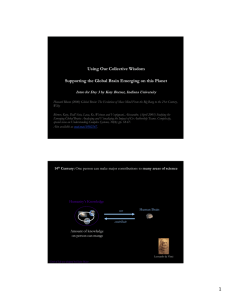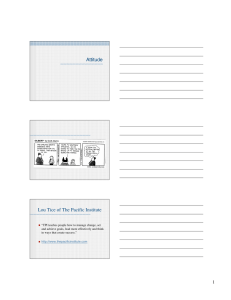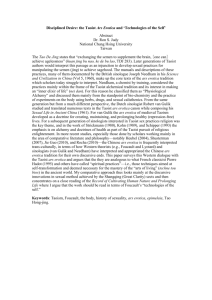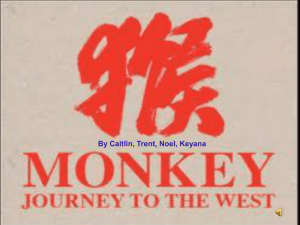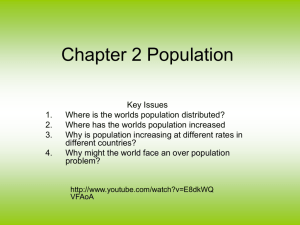environmental consequences
advertisement
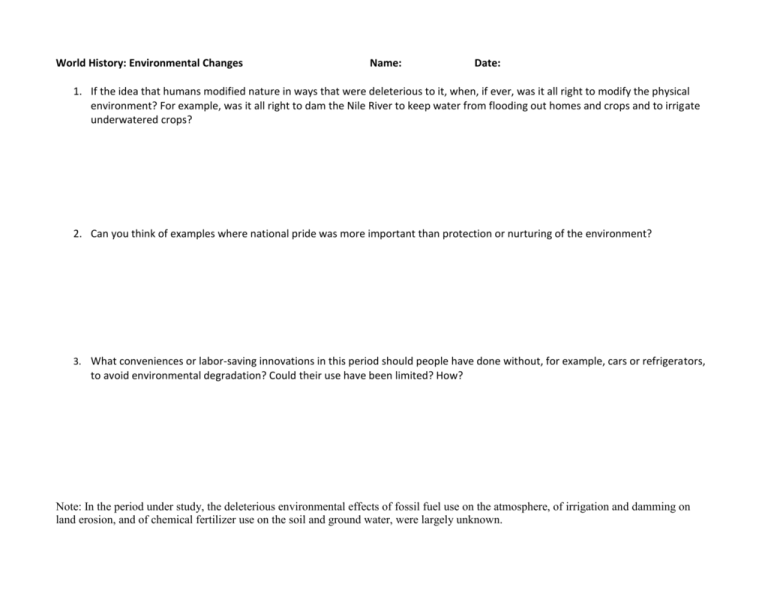
World History: Environmental Changes Name: Date: 1. If the idea that humans modified nature in ways that were deleterious to it, when, if ever, was it all right to modify the physical environment? For example, was it all right to dam the Nile River to keep water from flooding out homes and crops and to irrigate underwatered crops? 2. Can you think of examples where national pride was more important than protection or nurturing of the environment? 3. What conveniences or labor-saving innovations in this period should people have done without, for example, cars or refrigerators, to avoid environmental degradation? Could their use have been limited? How? Note: In the period under study, the deleterious environmental effects of fossil fuel use on the atmosphere, of irrigation and damming on land erosion, and of chemical fertilizer use on the soil and ground water, were largely unknown. Instructions: Draw an illustration to depict each theory of human-nature relationship below. Humanity in harmony with nature: Think about a Taoist sitting in his garden meditating. He hears a gentle waterfall gurgle over pebbles. A bird chirps in rhythm with the Taoist’s heartbeat, a breeze brushes a wisp of hair from his forehead, and the fragrance of lilies pleases his nose. The Taoist gets up and strolls through his garden noticing a fallen tree limb. He picks it up and sets it on a rock in order to meditate later on its gnarled nodes. Humanity as determined by nature: Ancient Greek philosophers taught that humans were composed of the same elements as the planet: earth, wind, fire, and water, and that balancing these led to physical health. Seventeenth-century American ministers suggested that New England’s earthquakes were the manifestations of society’s sins. Some Native American children are named for an environmental phenomenon, like a lunar eclipse or thunderstorm, that occurred during their birth and that is expected to affect their character as they grow up. Humanity as a modifier of nature: In Genesis, the first book of the Bible, God made humans to be the custodians of the natural world, an idea found throughout Jewish theology. Karl Marx suggested that “nature exists to be harnessed by labor.” China’s Three Gorges dam is touted by its government as the triumph of humans over nature.
